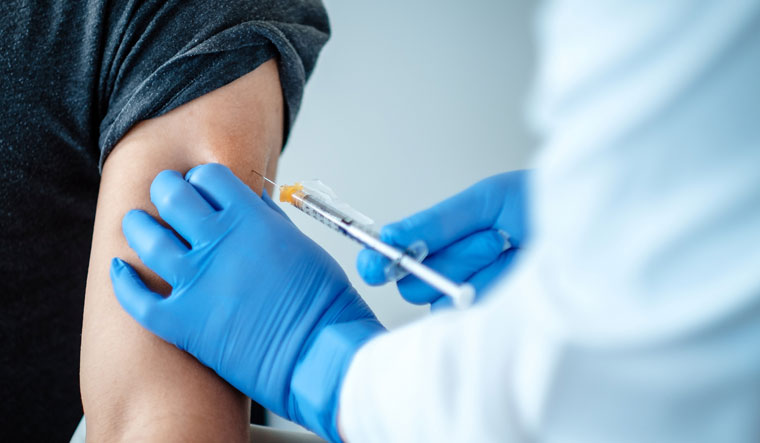On Saturday, US president-elect Joe Biden assured American citizens that he himself will be vaccinating publicly to assuage any concerns about its efficacy and safety, and said that no one will be forced to take the COVID-19 vaccine. With Bahrain becoming the second country to order the Pfizer vaccine after United Kingdom, which will start public vaccinations in a few days, world leaders have come out encouraging everyone to get inoculated.
There were questions whether the United Kingdom accepted the Pfizer vaccine emergency usage too fast, but regulators pooh-poohed the question. According to multiple reports, Dr June Raine at the UK medical regulator agency said people should be absolutely confident that “no corners have been cut”. British experts reviewed more than 1,000 pages of information, including raw data, on safety, quality and effectiveness before deciding to give temporary authorisation for the Pfizer/BioNTech vaccine's use, she said. But that doesn't mean regulators take the same approach everywhere.
American immunologist Dr Anthony Fauci, director of the National Institute of Allergy and Infectious Disease, said that British regulators didn’t review the data as carefully as their counterparts at the US Food and Drug Administration, potentially fuelling concerns of individuals who are hesitant about getting the vaccine. “We have the gold standard of a regulatory approach with the FDA,'' Fauci said. “The UK did not do it as carefully. They got a couple of days ahead. I don’t think that makes much difference. We’ll be there very soon.''
World leaders have come out in droves to assuage public concerns. Turkey’s president said he would get vaccinated against the coronavirus to set an example for his country's citizens. “There is no problem for me to get vaccinated,” Recep Tayyip Erdogan said. “It is necessary to take this step as an example for our citizens.” The Turkish government plans to buy multiple vaccines, Erdogan said. Turkey has ordered 50 million doses of Chinese company Sinovac Biotech’s CoronaVac, and the first shipment is due to arrive December 11. The government also is talking with Russia about securing the vaccine developed there.
Three former US presidents had earlier said that they would be willing to take a coronavirus vaccine publicly. Former president Barack Obama said: “I promise you that when it has been made for people who are less at risk, I will be taking it. I may end up taking it on TV or having it filmed, just so people know that I trust this science.” Former president Bill Clinton said he would “definitely” be willing to get a vaccine, as soon as one is “available to him”, and “he will do it in a public setting if it will help urge all Americans to do the same”. George W. Bush recently said that “when the time is right, he wants to do what he can to help encourage his fellow citizens to get vaccinated, and will gladly do so on camera.”
Declining trust in vaccines
Statistics have been showing a declining trust in vaccines in the world, many of the beliefs based on fake news and false information. Francesco Rocca, president of the International Federation of Red Cross and Red Crescent Societies, said in a virtual briefing to the UN Correspondents Association that “to beat this pandemic, we also have to defeat the parallel pandemic of distrust”.
He said there is “a growing hesitancy about vaccines in general, and about COVID vaccines in particular” around the world, pointing to a recent Johns Hopkins University study in 67 countries that found vaccine acceptance declined significantly in most countries from July to October this year.
In a quarter of countries, the study found that the acceptance rate for a vaccine against the coronavirus was near or below 50 per cent, with Japan dropping from 70 per cent to 50 per cent acceptance, and France dropping from 51 per cent to 38 per cent acceptance.
He stressed that the lack of trust “is by no means a Western phenomenon”, citing the federation’s research in recent months in eight African countries—Congo, Cameroon, Gabon, Zimbabwe, Sierra Leone, Rwanda, Lesotho and Kenya—which showed a steady decline in the perceptions of the risk of COVID-19 infection.
A growing number of people indicated the virus doesn’t affect young people or Africans, that the disease doesn’t exist now but did exist and the pandemic has ended, he said. “In several African countries, we have seen a common skepticism towards vaccines in general, with a common belief being that foreigners use Africa as a medical ‘testing ground.’”
Surprisingly, Rocca said, some typically vulnerable and marginalised groups aren’t even aware of the pandemic, pointing to a federation survey in Pakistan which found 10 per cent of respondents didn’t know about COVID-19.
The so-called anti-vaxxer movement—driven by fraudulent claims linking the vaccines to a risk of autism in children—has always been there. WHO had earlier pointed out that the reasons for people not being vaccinated vary significantly between communities and countries, with a lack of access to quality healthcare or vaccination services hindering some from getting the jabs, while others are led astray by "misinformation about vaccines, or low awareness about the need to vaccinate."
-Inputs from agencies


